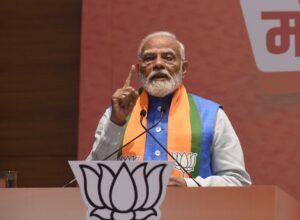Mahsa Amini not forgotten in Iran six months after death
Tehran, Iran (AFP):
Six months ago this week, Mahsa Amini was arrested for allegedly flouting Iran’s strict dress code for women. Within days she was dead while in police custody, sparking the country’s biggest protests in years.
The 22-year ethnic Kurd became a household name inside Iran, a rallying point for demands for change. Around the world, she became a hero for women’s rights campaigners and a symbol for Western opponents of the Islamic republic.
Amini was visiting the capital Tehran with her brother and cousins when she was arrested as they were leaving a metro station in the city centre last September.
She was taken to a police station by officers of the morality police.
There she collapsed after a quarrel with a policewoman, according to a short surveillance video released by the authorities.
She spent three days in hospital in a coma before her death on September 16, which the authorities blamed on underlying health issues.
Her name became the rallying point for a protest movement that gripped the country for months.
The epitaph engraved on her tomb reads: “You are not dead Mahsa, your name has become a symbol”.
“Unknown before her death, Mahsa has become a symbol of oppression and her innocent face reinforces this image,” said political scientist Ahmad Zeidabadi.
Call for openness
The protests over her death in custody, which began in the capital and in her native Kurdistan province, swiftly mushroomed into a nationwide movement for change.
Public anger over her death merged with “a series of problems, including the economic crisis, attitudes toward the morality police, or political issues such as the disqualification of candidates for election” by Iran’s conservative-dominated vetting body the Guardian Council, said sociologist Abbas Abdi.
Spearheaded by young people demanding gender equality and greater openness without a leader or political programme, the street protests peaked late last year.
Hundreds of people were killed, including dozens of security force personnel. Thousands more were arrested for participating in what officials described as “riots” and blamed on hostile forces linked to the United States, Israel and their allies.
In February, after the protests abated and supreme leader Ayatollah Ali Khamenei decreed a partial amnesty, the authorities began to release thousands of people arrested in connection with the protests.
Some 22,600 people “linked to the riots” have so far been released, the head of the judiciary, Gholamhossein Mohseni Ejei said this week.












